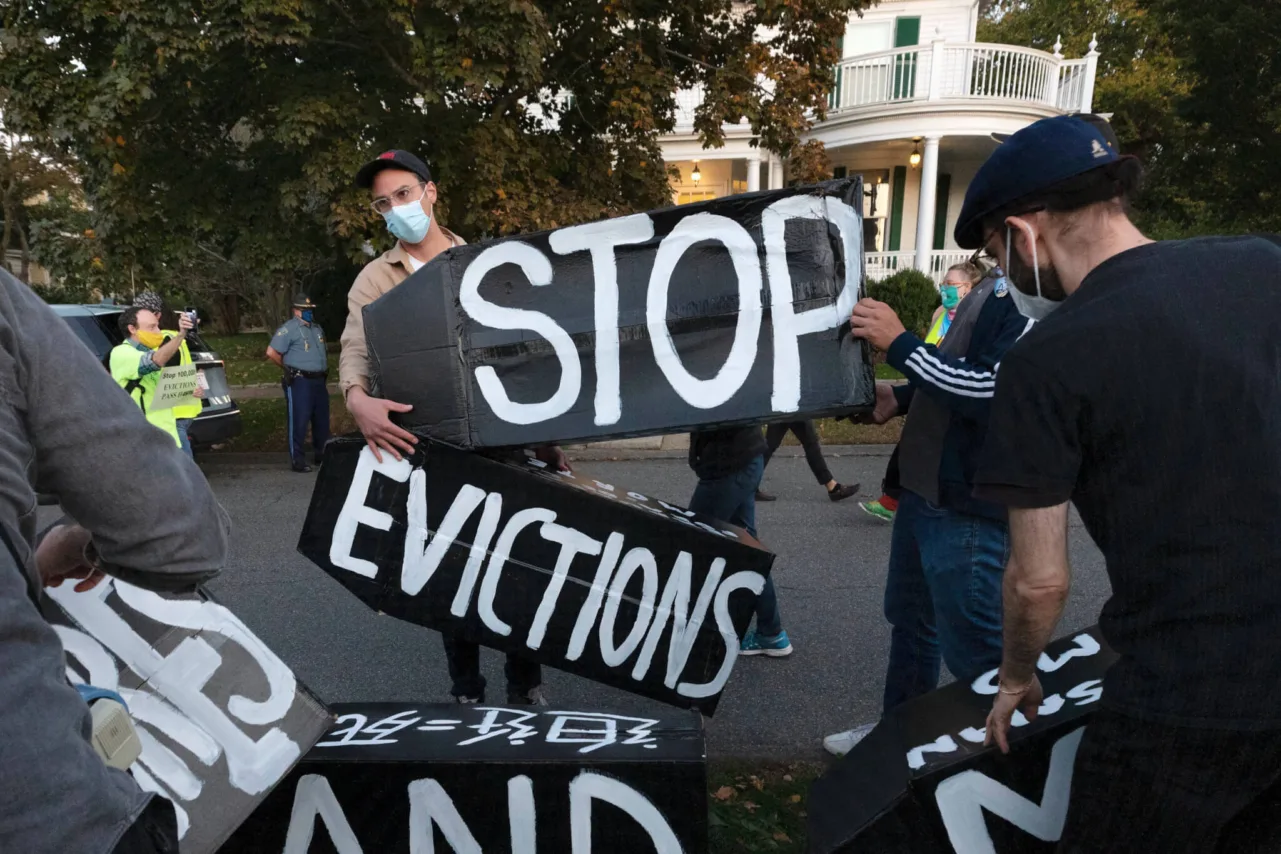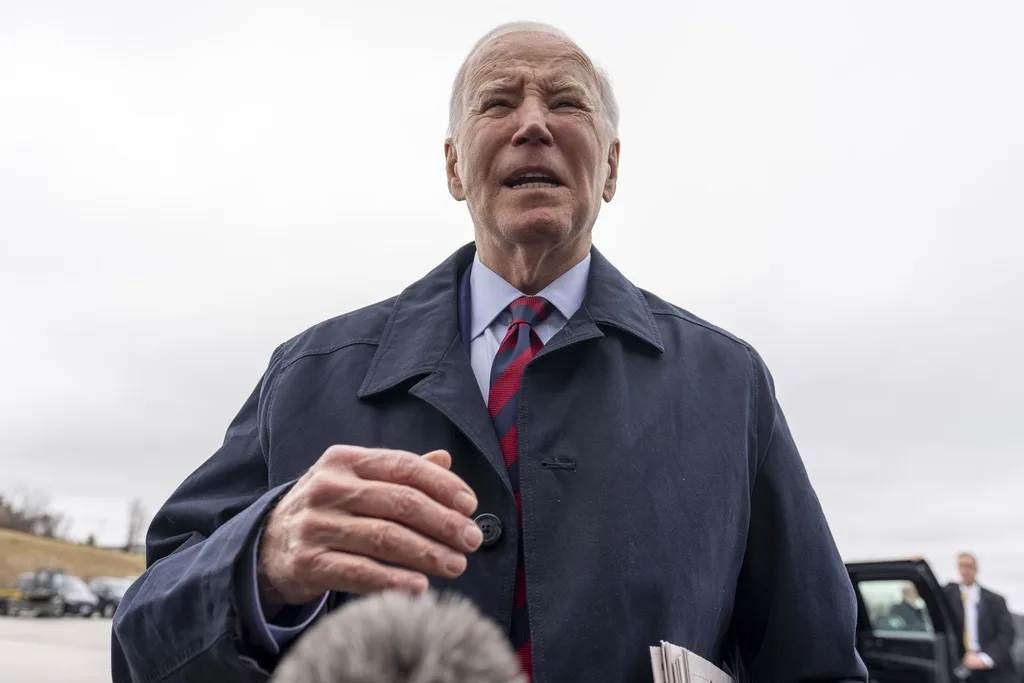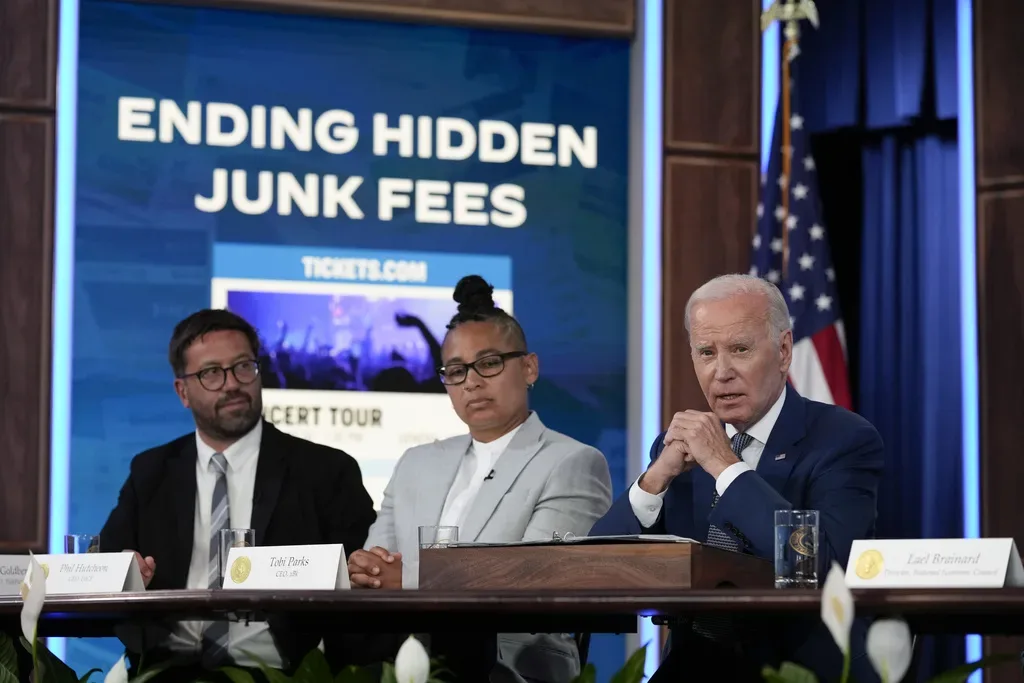
#image_title
#image_title
The US Supreme Court ended the federal eviction ban Thursday amid the dangerous Delta variant surge, prompting concerns from Wisconsin housing advocates.
The US Supreme Court overturned the federal eviction moratorium late Thursday, a decision that will allow evictions to resume across the country and that housing advocates in Wisconsin say places tens of thousands of state residents who are behind on rent payments at risk of becoming homeless.
The federal eviction ban was enacted in September to keep people housed who had lost income related to economic difficulties posed by the coronavirus pandemic. The ban was extended multiple times and was set to expire July 31 before its end date was pushed again to Oct. 3.
However, the Supreme Court ruled that the Centers for Disease Control and Prevention overstepped its authority by issuing the moratorium. The court’s decision means landlords can begin evicting renters in states or cities without a moratorium of their own.
“We’re going to see an increase in homelessness that will put a strain on our already overburdened system of homeless shelters,” said Kevin Burch, director of housing services for Catholic Charities of the Diocese of La Crosse that operates shelters in La Crosse, Wausau, Eau Claire, and other locations.
Working with regional housing organizations, the state Department of Administration (DOA) distributed Wisconsin Emergency Rental Assistance (WERA) funding last year to qualified state residents to help them make past-due rent and utility payments. The funds are for renters with household incomes of up to 80% of their region’s median income who have struggled to pay rent during the pandemic. Renters can receive up to 12 months of rent payments through the program.
RELATED: Far From Over: Even With Relief Aid, Wisconsin Sees More Struggling Families Losing Their Homes
Because of ongoing need, in February the state received another $380 million in WERA money to help keep people in their homes. As of Aug. 25, about $54 million has been disbursed to help pay rental and utility assistance costs for 14,167 Wisconsin households, according to DOA figures.
Despite that assistance, an estimated 60,000 households remain behind on rent payments across Wisconsin and tens of thousands more have little confidence in their ability to pay next month’s rent, according to US Census Bureau data.
Landlords have said they are struggling to maintain their properties without rent from tenants. In many cases, landlords said, they have gone without rent payments on properties for a year or more. Wisconsin housing advocates said they are sympathetic to challenges landlords are facing because of past-due rents, but they are worried that the number of evictions in the state will rise significantly following the court’s ruling.
“The end of the moratorium may bring some relief to landlords who have borne the financial brunt of the pandemic, but it will place that burden on renters who have even fewer resources,” said Judi Mosely, co-chair of the JONAH Affordable Housing Task Force in Eau Claire. “We must shift now to making sure that both landlords and tenants access the emergency rental assistance funding that is available.”
Michael Basford, director of the Wisconsin Interagency Council on Homelessness, said WERA funds have helped reduce the number of evictions occurring in the state. Evictions in Wisconsin are averaging about 1,000 per month, well below the 2,500 to 3,000 that normally occur monthly.
Despite challenges, Wisconsin has done a better job of disbursing rental assistance dollars to people in need than has happened nationally. According to a report in the New York Times, only 11% of $46.5 billion in federal rental aid has made its way to the people who need it, prompting concerns nationally among housing organizations about a rise in evictions among people no longer being able to afford housing.

During a recent interview, DOA Secretary Joel Brennan told UpNorthNews Wisconsin has done a good job of linking housing back-pay money to people in need. However, Brennan acknowledged that connecting with the tens of thousands of people who qualify for rental assistance and walking them through the application process is challenging.
“Making contacts with so many people with the resources we have is a lot of work,” he said, praising the work of regional service providers getting people WERA funds.
One of those agencies, Western Dairyland Community Action Agency, has helped renters and landlords in Buffalo, Trempealeau, Jackson, Eau Claire, and Clark counties access $2.9 million in rental assistance money since mid-February. That money has helped stabilize housing for 730 families impacted by the pandemic, said Dale Karls, the agency’s communications coordinator.
But with the end of the eviction ban, Jeanne Semb, housing services program manager for Western Dairyland, worries about looming evictions that could force more people from their homes and add to an already overburdened homeless situation in Eau Claire and elsewhere in Wisconsin and the US. An especially tight housing market in Eau Claire and other parts of west-central Wisconsin will make finding affordable housing especially challenging for anyone who is evicted, Semb said.
“If landlords do evict families, we could be faced with many more homeless issues locally,” Semb said, noting the need for more affordable housing and more landlords willing to house people who have evictions on their record.
The number of homeless people in Wisconsin seems to have increased during the pandemic, directors of homeless agencies across the state said. That population is at particularly high risk of contracting COVID-19, and while coronavirus relief funding has provided dollars to assist homeless services, that money is not enough to meet the growing need, they said.
Finding housing for people who are already homeless has proven especially challenging during the pandemic, Burch said. Homeless agencies’ resources have been stretched thin during the pandemic, he said, and they aren’t able to effectively respond to an influx of more people without housing.
“With the increase in COVID cases because of the Delta variant, we’re already facing even bigger challenges,” Burch said, “and if you add a bunch more homeless people, I don’t know what we’re going to do.”
To apply for assistance paying for past-due rent and utilities, visit https://doa.wi.gov/Pages/WERA.aspx.
Politics

What’s the difference between Eric Hovde and Sen. Tammy Baldwin on the issues?
The Democratic incumbent will point to specific accomplishments while the Republican challenger will outline general concerns he would address....

Who Is Tammy Baldwin?
Getting to know the contenders for this November’s US Senate election. [Editor’s Note: Part of a series that profiles the candidates and issues in...
Local News

Stop and smell these native Wisconsin flowers this Earth Day
Spring has sprung — and here in Wisconsin, the signs are everywhere! From warmer weather and longer days to birds returning to your backyard trees....

Your guide to the 2024 Blue Ox Music Festival in Eau Claire
Eau Claire and art go hand in hand. The city is home to a multitude of sculptures, murals, and music events — including several annual showcases,...




